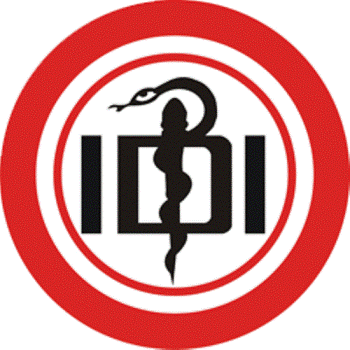Definition
The birth of a baby can trigger a jumble of powerful emotions, from excitement and joy to fear and anxiety. But it can also result in something you might not expect — depression.
Many new moms experience the baby blues after childbirth. An estimated 10 percent of new moms experience a more severe form of emotional distress known as postpartum depression. Rarely, an extreme form of postpartum depression known as postpartum psychosis develops after childbirth.
Postpartum depression isn't a character flaw or a weakness. Sometimes postpartum depression is simply part of giving birth. If you have postpartum depression, prompt treatment can help you manage your symptoms — and enjoy your baby.
Symptoms
Signs and symptoms of depression after childbirth vary depending on the type of depression.
Baby blues
Signs and symptoms of the baby blues — which last only a few days or weeks — may include:
* Mood swings
* Anxiety
* Sadness
* Irritability
* Crying
* Decreased concentration
* Trouble sleeping
Postpartum depression
Postpartum depression may appear to be the baby blues at first — but the signs and symptoms are more intense and longer lasting, eventually interfering with your ability to care for your baby and handle other daily tasks. Signs and symptoms of postpartum depression may include:
* Loss of appetite
* Insomnia
* Intense irritability and anger
* Overwhelming fatigue
* Loss of interest in sex
* Lack of joy in life
* Feelings of shame, guilt or inadequacy
* Severe mood swings
* Difficulty bonding with the baby
* Withdrawal from family and friends
* Thoughts of harming yourself or the baby
Postpartum psychosis
With postpartum psychosis — a rare condition that typically develops within the first two weeks after delivery — the signs and symptoms are even more severe. Signs and symptoms of postpartum psychosis may include:
* Confusion and disorientation
* Hallucinations and delusions
* Paranoia
* Attempts to harm yourself or the baby
Causes
There's no single cause for postpartum depression. Physical, emotional and lifestyle factors may all play a role.
* Physical changes. After childbirth, a dramatic drop in estrogen and progesterone may contribute to postpartum depression. The hormones produced by your thyroid gland also may drop sharply — which can leave you feeling tired, sluggish and depressed. Changes in your blood volume, blood pressure, immune system and metabolism can lead to fatigue and mood swings.
* Emotional factors. When you're sleep deprived and overwhelmed, you may have trouble handling even minor problems. You may be anxious about your ability to care for a newborn. You may feel less attractive or struggle with your sense of identity. You may feel that you've lost control over your life. Any of these factors can contribute to postpartum depression.
* Lifestyle influences. Many lifestyle factors can lead to postpartum depression, including a demanding baby or older siblings, difficulty breast-feeding, exhaustion, financial problems, and lack of support from your partner or other loved ones.
Risk factors
Postpartum depression can develop after the birth of any child, not just the first. The risk increases if:
* You have a history of depression, either during pregnancy or at other times
* You had postpartum depression after a previous pregnancy
* You've experienced stressful events during the past year, including illness, job loss or pregnancy complications
* You're experiencing marital conflict
* You have a weak support system
* The pregnancy is unplanned or unwanted
The risk of postpartum psychosis is higher for women who have bipolar disorder.
When to seek medical advice
If you're feeling depressed after your baby's birth, you may be reluctant or embarrassed to admit it. But it's important to tell your doctor. If the signs and symptoms of depression don't fade after a few weeks or if they're so severe that they interfere with your ability to complete everyday tasks, call your doctor. Early intervention can speed your recovery.
If you suspect that you're developing postpartum psychosis, seek medical attention immediately. Don't wait and hope for improvement. Postpartum psychosis may lead to life-threatening thoughts or behaviors. Tests and diagnosis
By Mayo Clinic staff
To distinguish between a short-term case of the baby blues and a more severe form of depression, your doctor may ask you to complete a depression-screening questionnaire. Blood tests can help your doctor determine whether an underactive thyroid is contributing to your signs and symptoms.
Complications
Left untreated, postpartum depression can interfere with mother-child bonding and cause family distress. Children of mothers who have untreated postpartum depression are more likely to have behavioral problems, such as sleeping and eating difficulties, temper tantrums and hyperactivity. Delays in language development are common as well.
Untreated postpartum depression can last up to a year or longer. Sometimes untreated postpartum depression becomes a chronic depressive disorder. Even when treated, postpartum depression increases a woman's risk of future episodes of major depression.
Treatments and drugs
Treatment and recovery time vary, depending on the severity of your depression and your individual needs.
Baby blues
The baby blues usually fade on their own within a few days to weeks. In the meantime, get as much rest as you can. Accept help from family and friends. Connect with other new moms. Avoid alcohol, which can make mood swings worse. If you have an underactive thyroid, your doctor may prescribe thyroid medication.
Postpartum depression
Postpartum depression is often treated with counseling and medication.
* Counseling. It may help to talk through your concerns with a psychiatrist, psychologist or other mental health professional. Through counseling, you can find better ways to cope with your feelings, solve problems and set realistic goals. Sometimes, family or marital therapy also is helpful.
* Antidepressants. Antidepressants are a proven treatment for postpartum depression. If you're breast-feeding, it's important to know that any medication you take will enter your breast milk. However, various antidepressants can be used during breast-feeding with little risk of side effects for your baby. Work with your doctor to weigh the potential risks and benefits of specific antidepressants.
* Hormone therapy. Estrogen replacement may help counteract the rapid drop in estrogen that accompanies childbirth, which may ease the signs and symptoms of postpartum depression in some women. Research on the effectiveness of hormone therapy for postpartum depression is limited, however. As with antidepressants, weigh the potential risks and benefits of hormone therapy with your doctor.
With appropriate treatment, postpartum depression usually goes away within a few months. In some cases, postpartum depression lasts up to a year. It's important to continue treatment after you begin to feel better, however. Stopping treatment too early may only lead to a relapse.
Postpartum psychosis
Postpartum psychosis requires immediate treatment, often in the hospital.
When your safety is assured, a combination of medications — such as antidepressants, antipsychotic medications and mood stabilizers — may be used to control your signs and symptoms. Sometimes electroconvulsive therapy (ECT) is recommended as well. During ECT, a small amount of electrical current is applied to your brain to produce brain waves similar to those that occur during a seizure. The chemical changes triggered by the electrical currents can reduce the symptoms of depression, especially when other treatments have failed or when you need immediate results.
Treatment for postpartum psychosis can challenge a mother's ability to breast-feed. Separation from the baby makes breast-feeding difficult, and some medications used to treat postpartum psychosis aren't recommended for women who are breast-feeding. If you're experiencing postpartum psychosis, a team of health care providers will help you work through these challenges.
Prevention
If you have a history of depression — especially postpartum depression — mention it to your doctor as soon as you find out you're pregnant. Your doctor will monitor you closely for signs and symptoms of depression. Sometimes mild depression can be managed with support groups, counseling or other therapies. In other cases, antidepressants are recommended — even during pregnancy.
After your baby is born, your doctor may recommend an early postpartum checkup to screen for signs and symptoms of postpartum depression. The earlier postpartum depression is detected, the earlier treatment can begin. If you have a history of postpartum depression, your doctor may recommend antidepressant treatment immediately after delivery.
Lifestyle and home remedies
Postpartum depression isn't generally a condition that you can treat on your own — but you can do some things for yourself that build on your treatment plan. In fact, taking good care of yourself can help speed your recovery.
* Make healthy lifestyle choices. Rest as much as you can. Include physical activity, such as a walk with your baby, in your daily routine. Eat healthy foods — plenty of fruits, vegetables and whole grains. Avoid alcohol.
* Set realistic expectations. Don't pressure yourself to do everything. Scale back your expectations for the perfect household. Do what you can and leave the rest. Ask for help when you need it.
* Make time for yourself. If you feel like the world is coming down around you, take some time for yourself. Get dressed, leave the house, and visit a friend or run an errand. Or schedule some time alone with your partner.
* Avoid isolation. Talk with your partner, family and friends about how you're feeling. Ask other mothers about their experiences. Ask your doctor about local support groups for new moms or women who have postpartum depression.
Alternative medicine
Little research has been done on complementary and alternative therapies for postpartum depression. Although some data is available, it's not definitive.
If you'd like to try a complementary or alternative therapy for postpartum depression, share your wishes with your doctor. He or she can help you weigh the benefits and risks of specific therapies, such as:
* Acupuncture. Acupuncture helps promote deep relaxation, and sometimes even sleep. This may help relieve the fatigue that accompanies postpartum depression.
* Omega-3 fatty acids. Omega-3 fatty acids are known to support infant brain development during pregnancy. Some research suggests that omega-3 fatty acids — whether eaten in fish and other seafood or taken as a nutritional supplement — may help relieve postpartum depression as well.
* Massage therapy. Some studies suggest that massage therapy may be helpful for postpartum depression.
* Creative arts. Art, music and drama therapy have been suggested as possible ways to relieve postpartum depression, perhaps by providing a supportive, relaxed environment, offering new ways of expression or encouraging positive behavior changes.
Some studies suggest that the herb St. John's wort may be helpful for mild to moderate depression, although there's been no research published on St. John's wort and postpartum depression specifically. It's best to avoid St. John's wort if you're breast-feeding. St. John's wort may cause colic, drowsiness or lethargy in a nursing baby.
Remember, the best way to take care of your baby is to take care of yoursel
June 7, 2008
© 1998-2009 Mayo Foundation for Medical Education and Research (MFMER). All rights reserved. A single copy of these materials may be reprinted for noncommercial personal use only. "Mayo," "Mayo Clinic," "MayoClinic.com," "EmbodyHealth," "Reliable tools for healthier lives," "Enhance your life," and the triple-shield Mayo Clinic logo are trademarks of Mayo Foundation for Medical Education and Research.
BLOG DOKTER SPESIALIS KEBIDANAN DAN PENYAKIT KANDUNGAN ( Obstetric's & Gynecologist Blog ) Sumatera Barat.,Indonesia
SAVE YOUR BABY'S, SAVE NEXT GENERATION'S
SAVE YOUR BABY'S, SAVE NEXT GENERATION'S
Search This Blog
- Universitas Andalas Website
- TRIGEMINAL NEURALGIA LECTURES AND TREATMENT
- Maternal and Child :Research and Article
- dr Firman. Abdullah SpOG/ OBGYN .Personal Edition
- dr Firman Abdullah SpOG / ObGyn.com
- Dr Djohanas Djohan Abdullah Memorial Hospital.com
- Bukittinggi International Hospital.com
- Aliansi Rakyat Anti Korupsi Bukitinggi.com
Jam Gadang.Bukittinggi. Sumatera Barat .Indonesia
24.jpg)

Bung Hatta statue ,Bukittinggi
About me.....
IKATAN DOKTER INDONESIA (IDI).Sumatera Barat

INDONESIAN MEDICAL ASSOCIATION
ASSALAMUALAIKUM........
dr Firman Abdullah SpOG / OBGYN
Peer - Review..Cyberounds
Blog Archive
-
►
2008
(1)
- ► March 2008 (1)
-
▼
2009
(387)
- ► April 2009 (87)
-
▼
July 2009
(78)
- POST PARTUM DEPRESSION, MAYO CLINIC
- Aerobic exercise: Top 10 reasons to get physical
- Exercise and depression: A means of self-mangement...
- Prenatal education for congenital toxoplasmosis
- Treatments for toxoplasmosis in pregnancy
- Vaccines for women to prevent neonatal tetanus
- Routine prophylactic drugs in normal labour for re...
- Transient neurologic symptoms (TNS) following spin...
- To have or not to have: The critical importance of...
- Genital herpes in pregnancy: information for you
- Maternal positions and mobility during first stage...
- OVARIUM CYST
- BARTHOLINI CYST
- LEARN ABOUT CYTOMEGALOVIRUS
- Primary versus Nonprimary Cytomegalovirus Infectio...
- Detection of Parvovirus B19, Cytomegalovirus, and ...
- Common virus could cause high blood pressure
- Definition of Follicular cyst of the ovary
- The management of infants and children treated wit...
- Congenital cytomegalovirus infection in pregnancy:...
- FIGO Position Statement on Professional Standards
- FIGO Reaffirms Stance on Eliminating Female Genita...
- WHA for FGM resolution
- Countdown to 2015
- FIGO Awards In Recognition of Women Obstetricians/...
- FIGO launches project to improve maternal and newb...
- Breast screening 'the best discovery tool
- Ultrasound 'outperforms symptom analysis' on ovari...
- Invest in women, invest in society, UN official cl...
- Medical care needed' for miscarriage sufferers
- Caesarean 'should not be automatic choice for bree...
- Inadequate health care 'still costing lives'
- Natural birth techniques 'can be very efficient'
- Maternal mortality rates 'have not improved since ...
- Pregnant women and newborns 'most at risk from flu'
- Many induced labours 'should be avoided'
- Work demands 'can impact on pregnancy'
- Stillbirth conference aims to raise awarness
- Mothers 'should be aware of birth options'
- Pelvic exercises 'can help with childbirth and rec...
- Mother's diet 'can lead to medical complications'
- Cytomegalovirus infection and haemophagocytosis in...
- Severe cytomegalovirus (CMV) community-acquired pn...
- The management of infants and children treated wit...
- Congenital rubella infection after previous immuni...
- Antiviral therapy for herpesvirus central nervous ...
- RCOG statement on ‘It’s good for women to suffer t...
- Royal College of Obstetricians and Gynaecologists
- The Challenge of MDGs 4 and 5, South Africa
- RCOG/RCM statement – Advice on swine flu and pregn...
- Pregnancy, Breastfeeding and Swine Flu A/H1N1
- Postnatal quality of life in women after normal va...
- Systematic review of effect of community-level int...
- Peripartum cardiomyopathy
- Pulmonary embolism and pregnancy
- Amniotic fluid embolism
- Airway problems in pregnancy
- Acute asthma in pregnancy
- Circumcision helps protect men, not women from AIDS
- Health Tip: Help Prevent Birth Defects Steps you ...
- Health Tip: Does Your Child Have Symptoms of ADHD?
- Alzheimer's Disease
- The Problem with Adhesions
- The impact of adhesions on endometriosis
- Pain and Endometriosis
- Endometriosis and bowel symptoms
- Mesoprogestins (Asoprisnil) in the treatment of en...
- Diagnosis and long-term management of endometriosis
- Endometriosis Image Library
- Progesterone resistence in endometriosis
- BJOG release: Vaginal delivery vs elective caesare...
- Childbirth aged 35 and over - query bank
- Secondary cytomegalovirus infection can cause seve...
- Epilepsy research
- H1N1 flu (swine flu)
- Four things you can do to prevent infections
- Infections in newborn babies
- Fetal hydrocephalus
- ► August 2009 (54)
- ► September 2009 (21)
- ► November 2009 (4)
- ► December 2009 (11)
-
►
2010
(45)
- ► January 2010 (6)
- ► February 2010 (11)
- ► March 2010 (1)
- ► April 2010 (7)
- ► November 2010 (2)
-
►
2011
(4)
- ► February 2011 (2)
- ► March 2011 (2)
FEEDJIT Live Traffic Feed
Discussion Board
FEEDJIT Live Traffic Map
FEEDJIT Recommended Reading
FEEDJIT Live Page Popularity
dr Firman Abdullah SpOG / OBGYN

Subscribe to:
Post Comments (Atom)
BMI CALCULATOR
ACHMAD MOCHTAR GENERAL HOSPITAL BUKITTINGGI

RUMAH SAKIT ACHMAD MOCHTAR BUKITTINGGI
Firman Abdullah Bung
drFirman Abdullah SpOG / ObGyn

KELUARGA BESAR TNI-AD
Dr Firman Abdullah SpOG/ OBGYN, Bukittinggi, Sumatera Barat ,Indonesia
Bukittinggi , Sumatera Barat , Indonesia

Balaikota Bukittinggi
dr Firman Abdullah SpOG / OBGYN

Ngarai Sianok ,Bukittinggi, Sumatera Barat.Indonesia

Brevet in Specialist Obstetric's & Gynecologist 1998

dr Firman Abdullah SpOG/ObGyn


Dokter Spesialis Kebidanan dan Penyakit Kandungan . ( Obstetric's and Gynaecologist ) . Jl.Bahder Johan no.227,Depan pasar pagi ,Tembok .Bukittinggi 26124 ,HP:0812 660 1614. West Sumatra,Indonesia
Sikuai Beach ,West Sumatra ,Indonesia


Fort de Kock, Bukittinggi






No comments:
Post a Comment